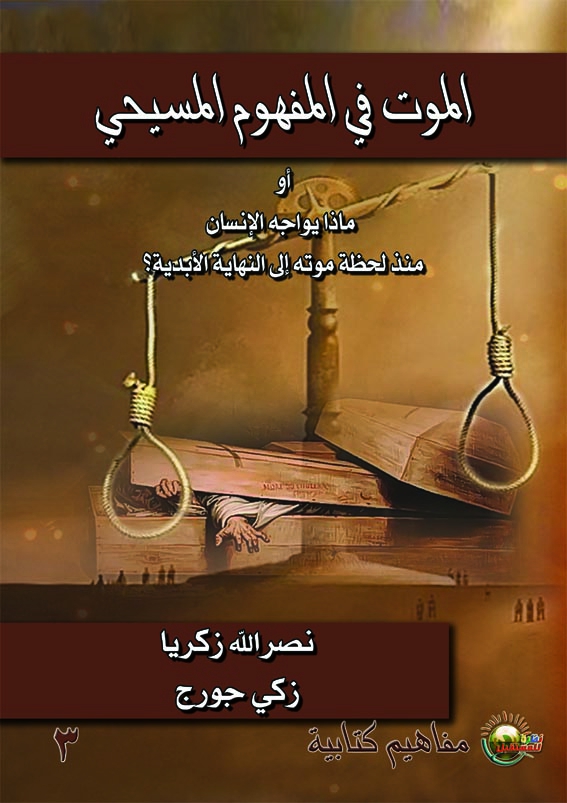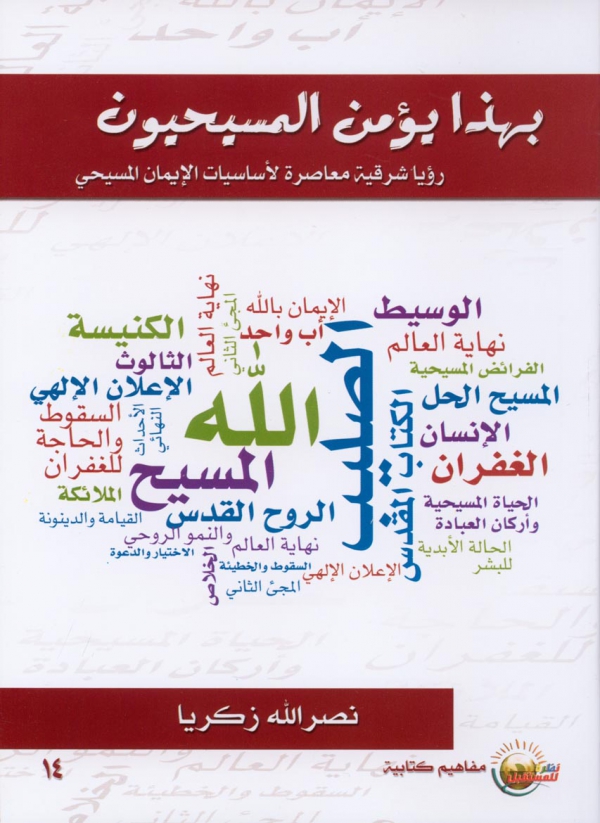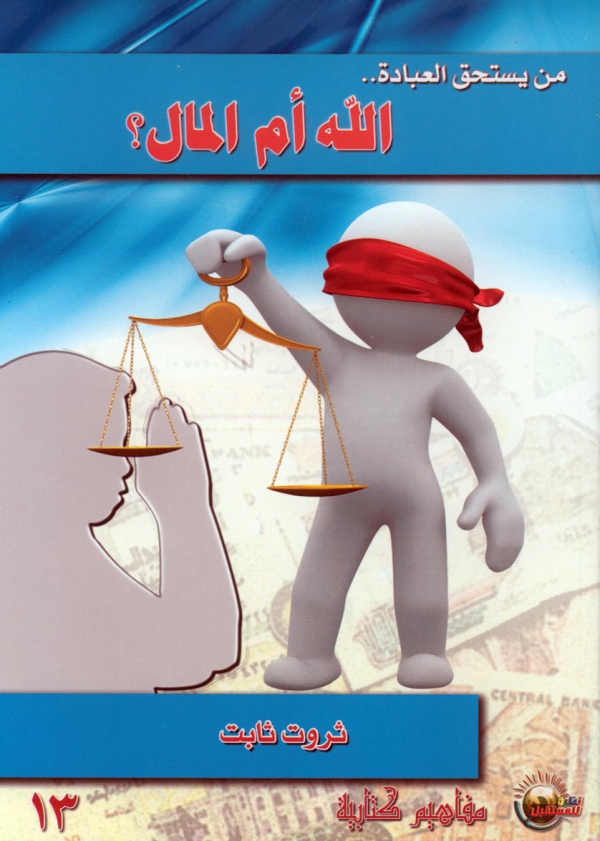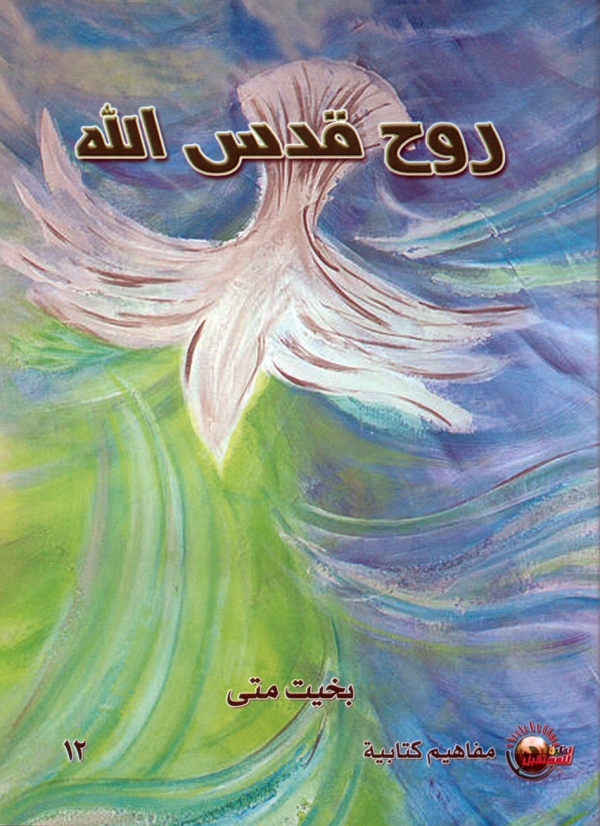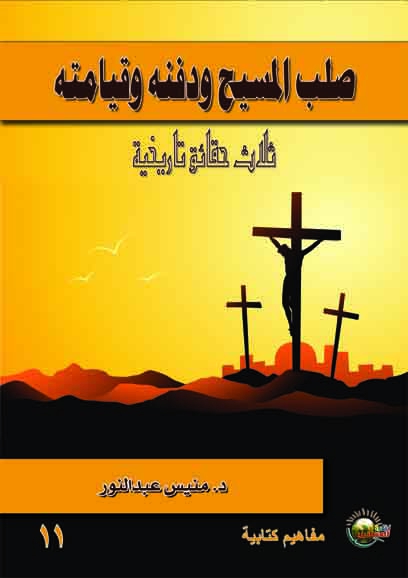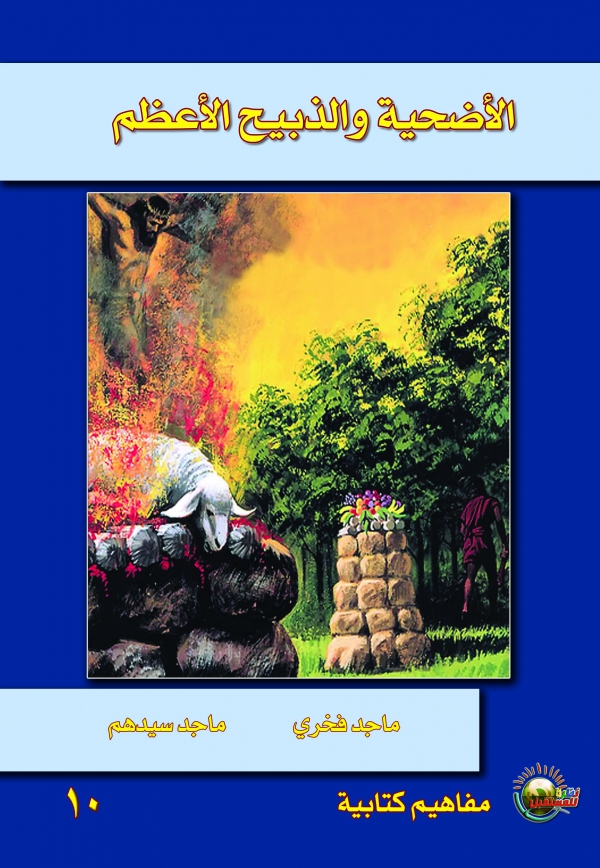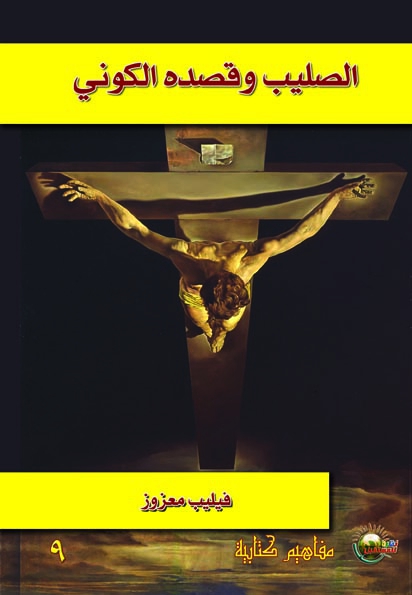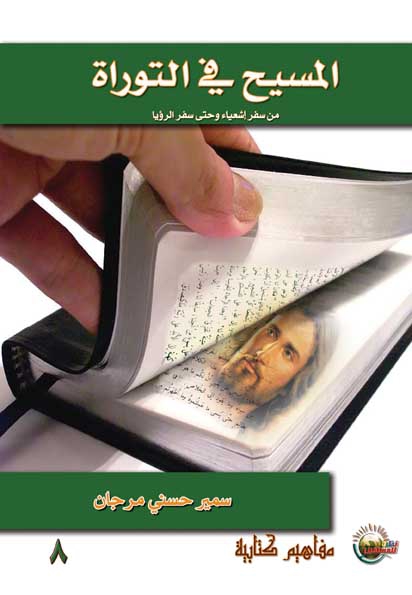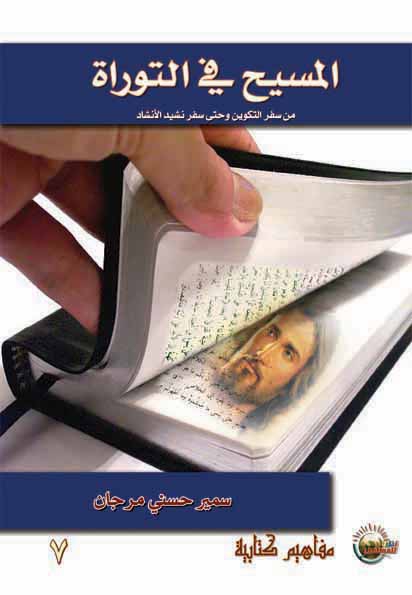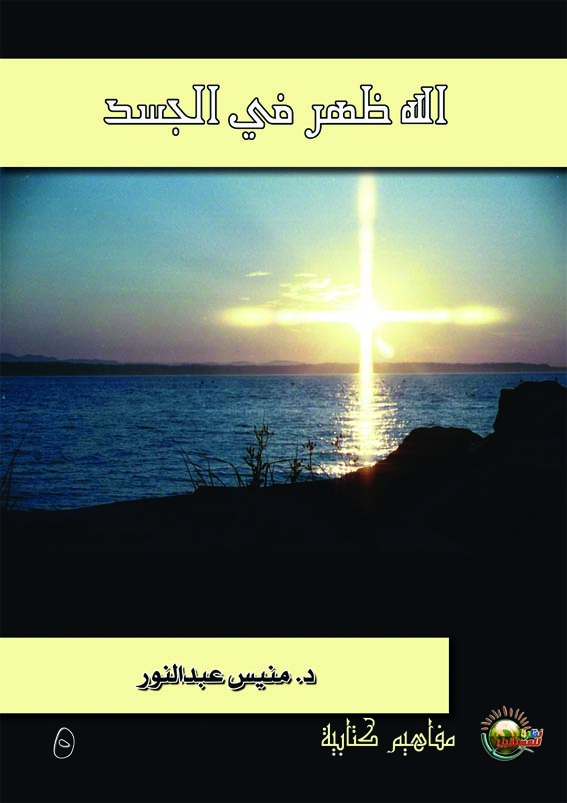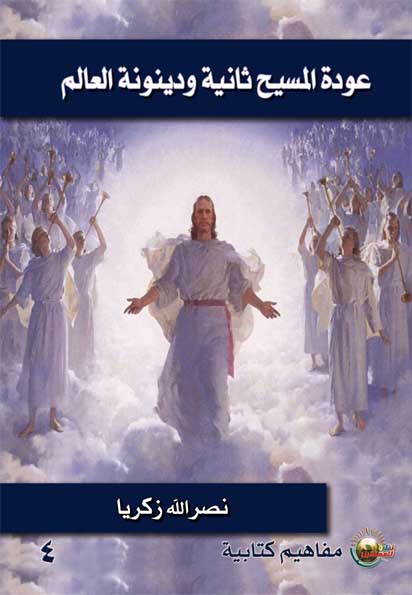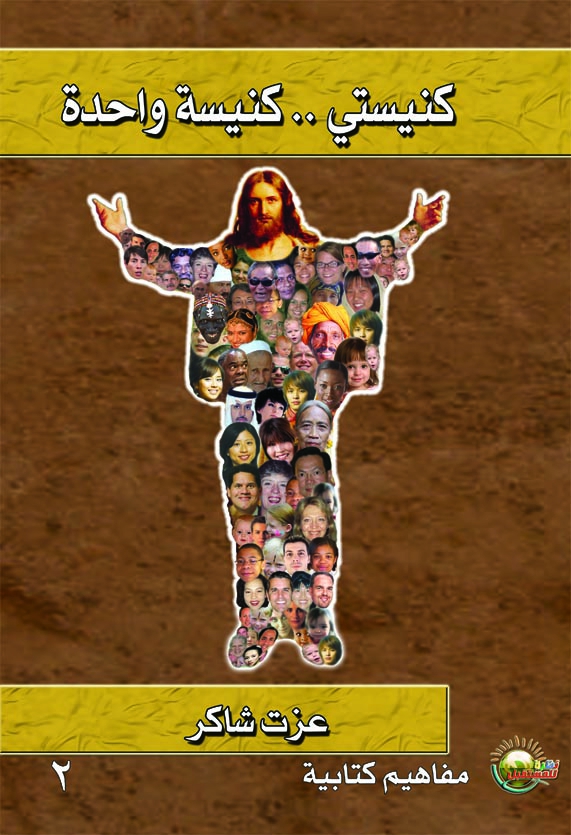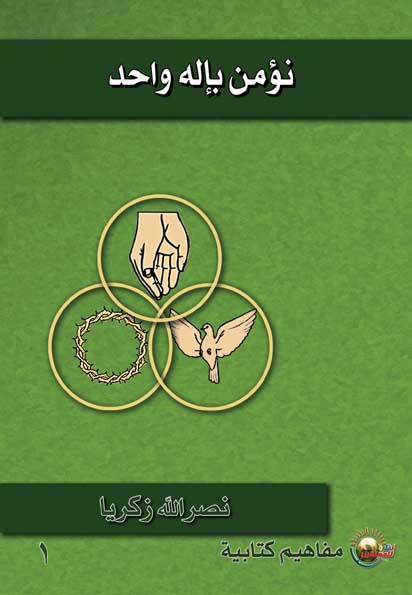Biblical Concepts
There is no doubt that we are all prone to stumbling in our spiritual life due to the wrong concepts of theology which we have formed in our minds. This series is designed to discuss key spiritual concepts in a way that reveals and clarifies biblical truths and is comprehensible to the contemporary Arabic mind.
A Christian View of Death
Author: Nasrallah Zakaria and Zaki George
Publisher: Vision For Future
Death is the only fact which all human beings are agreed on, irrespective of their color, ethnicity, belief, race or religion. While they may not agree or find a practical, social or even religious consensus about many phenomena or facts, they do agree on the reality and the inevitability of death. Therefore, death is indisputable.
Death carries a contradiction in its nature, insofar as it combines a "certainty" with an "uncertainty." Humans are certain that they will inevitably die. However, they never know when they will die.
However, the question we are most interested in is, "does the inevitability of death mean complete destruction?" In answering this question, the authors begin to define death. Their approach is to discuss the teachings of the Old Testament about death and what is beyond.
To begin, the authors talk about death from the Christian perspective, considering:
- First: natural death or death of sin
- Second: spiritual death
- Third: eternal death or second death
- Fourth: punitive death or (punishable by death)
- Fifth: the death of Christ
- Sixth: the death of the saints and the death of the wicked
In the second section of the book, the authors attempt to answer two of the most famous and common questions about death: What will happen to the dead in the tomb? What will happen after death or in the other world?
The next part of the book tackles the resurrection and judgment, which are common topics discussed by religions and beliefs. Brahmanism, Buddhism, Hinduism and Confucianism each believe in life after death. Abrahamic religions also believe in the doctrine of the resurrection of the dead (albeit differently), in life after death, and in the judgment.
In part four, the authors deal with the following themes:
- The concept of resurrection in the Old Testament
- The concept of resurrection in the New Testament
- Types of Resurrection: (first resurrection and public resurrection)
- Judgment: (the Judge and types of judgment)
Discussion of the judgment includes: the Bible, conscience, stewardship and the tree of life.
Discussion of the resurrection includes questions of eternal happiness and misery. After the trial and judgment, the last place for all human beings, whether they were wicked or they were righteous, will be determined. This final stage of being will be eternal, and the wicked will be sent to eternal torture or punishment while the righteous will enjoy eternal life.
The Bible tells us that the righteous enjoy eternal life, which starts when man experiences spiritual resurrection from the death of sin. This state happens when man has faith in Christ, the Son of God, who is the Savior.
Eternal life is more than just an eternal existence. It refers to the type and state of life that a Christian will live more than it refers to the place and time of living. Eternal life is the life of God in man's soul. It is life with all its glory and strength. It is life that is not bounded by the limits of the earth. It is the life of fellowship with God. Eternal life in its final form means that God will dwell among His people in a new land and in a new heaven that differs from the ones we know. Speaking about this place that God has prepared for the righteous, the apostle Paul said, "No eye has seen, no ear has hear, no mind has conceived, what God has prepared for those who love him." (1 Corinthians 2:9).
In this eternal state and place, believers will be like glittering stars. Each one is crowned with his/ her crown. There will be degrees in the heaven. Apostle Paul has used an analogy to describe this idea, and said, "For one star differs from another star in glory." (1Corinthians 15:41). It is noticed that all the righteous ones are described as glittering stars, which means that there is no misery in heaven. Everyone will be blessed more than we can imagine.
If there is an eternal state and a place for the righteous, then the same will be applied to the wicked. The eternal punishment is also a state and a place as well. It is a state of grief, of misery and of suffering. Though it is difficult for the human language to describe the state of the wicked in their eternal punishment, we are told that they will be able to see the righteous ones who experience joy in the God's Kingdom. Christ said about this state, "There will be weeping there, and gnashing of teeth, when you see Abraham, Isaac, Jacob and all the prophets in the kingdom of God, but you yourselves thrown out." (Luke 13:28)
Concerning the place of eternal torture where the wicked will spend eternity, Christ called it a "hell, where, "the worm that eat them do not die and the fire is not quenched." (Mark 9:45, 46, 48). Christ described it again as, "outside, the darkness, where will be weeping and gnashing of teeth." (Matthew 25:30). The place of the wicked where there is eternal torment is a real place. It is not a place for death, genocide and lack of presence, but it is a place of continuous torture. It is a comfort that God did not prepare eternal fire for man, but for the devil and his angels, where he kept them since their downfall and deception.
The Bible says that there are different degrees of torture that the wicked will suffer, each one according to his perception and responsibility for the sins and mistakes that he had committed in his life on earth. The apostle Paul wrote that God "will render to each one according to his deeds." (Romans 2:6). Thus, we realize that the wicked will be punished more severely than others. The Bible emphasized that no matter the different types of the torment, what is sure is that it will be eternal and permanent. The most severe part of this punishment is that separation from God will be permanent and eternal.
The authors concluded the book with a section acknowledging that many questions are raised about death when you study it, and all its stages, starting from burial in the tomb to the final eternal state. Each question needs a study. This part addresses some of these questions in an attempt to answer them or correct simply, and clarify them. This attempt may or may not succeed in its aim, but it is their sincere attempt to seriously think about, and consider the relevant topics at depth.
Some of the questions they consider are:
1. Did God create death?
2. Is there a so-called Angel of Death or Azrael? Who takes people's souls?
3. Is there a so-called Purgatory?
4. What is the difference between the abyss, hell, paradise and fire?
5. What is the Christian stance on suicide and martyrdom?
6. Where will children go after death?
7. Does God determine the age of a man? Does He determine the day of a man's death? Is the age of a man determined or limited? How might having this information benefit you?
All human beings will die. This is an uncontroversial and unquestioned truth. History has proven that all human beings should die one day, after which they will move to the eternal infinite world. Though life here on the earth is short, man can determine his eternal life, and his position there.
Though God made man feel that the eternity is coming soon and life is short compared to what one wants to achieve or accomplish, it is easy amid of the busy life and the indifference to eternal life that man forgets that his life on earth is short. The most honest advice that we read in the Bible is, "Prepare to meet your God," (Amos 4:12). One day, man must stand before God, the Judge. There is an invitation included in this advice to be ready for that hour and that day when man will stand alone, between God's hands, he who is fair and will judge man for each offense, sin, deed and word. What terrifying moments are they when those people will say to the mountains and to the rocks, "Fall on us and hide us from the presence of Him who sits on the throne, and from the wrath of the Lamb; for the great day of their wrath has come, and who is able to stand?" (Revelation 6:16-17)
Christ has defeated death and condemned sin. The Bible emphasizes this fact and says, "For what the Law could not do, weak as it was through the flesh, God did: sending His own Son in the likeness of sinful flesh and as an offering for sin, He condemned sin in the flesh," (Romans 8:3). The man who accepts Christ and believes in His sacrificial work on the cross and atonement, becomes free of the debt of sin. He does not fear death because he considers it the gate to happy eternity.
The wonderful thing is that God desires, wills, and wants man to enjoy life with Christ and the salvation that he has prepared for all human beings. This salvation includes the triumph of humanity over sin and death. God presents his will for all people through faith in Christ and his atonement. The bible says, "But as many as received Him, to them He gave the right to become children of God, even to those who believe in His name," (John 1:12). This faith does not depend on man's work, money, or practice of religious rituals, but it depends only on the acceptance of God's grace. Paul says, "For by grace you have been saved, through faith; and this not of yourselves, it is the gift of God; not as a result of works, so that no one may boast," (Ephesians 2:8, 9).
This is the desire of God. Does your desire align with God's desire, so that you may have a happy and eternal life? Will you accept God's grace in your short life-span, so that you may enjoy his company with the saints and with all believers—so that you may enjoy the happy life with Christ in a heaven prepared by God, for his people to live with him there forever?
